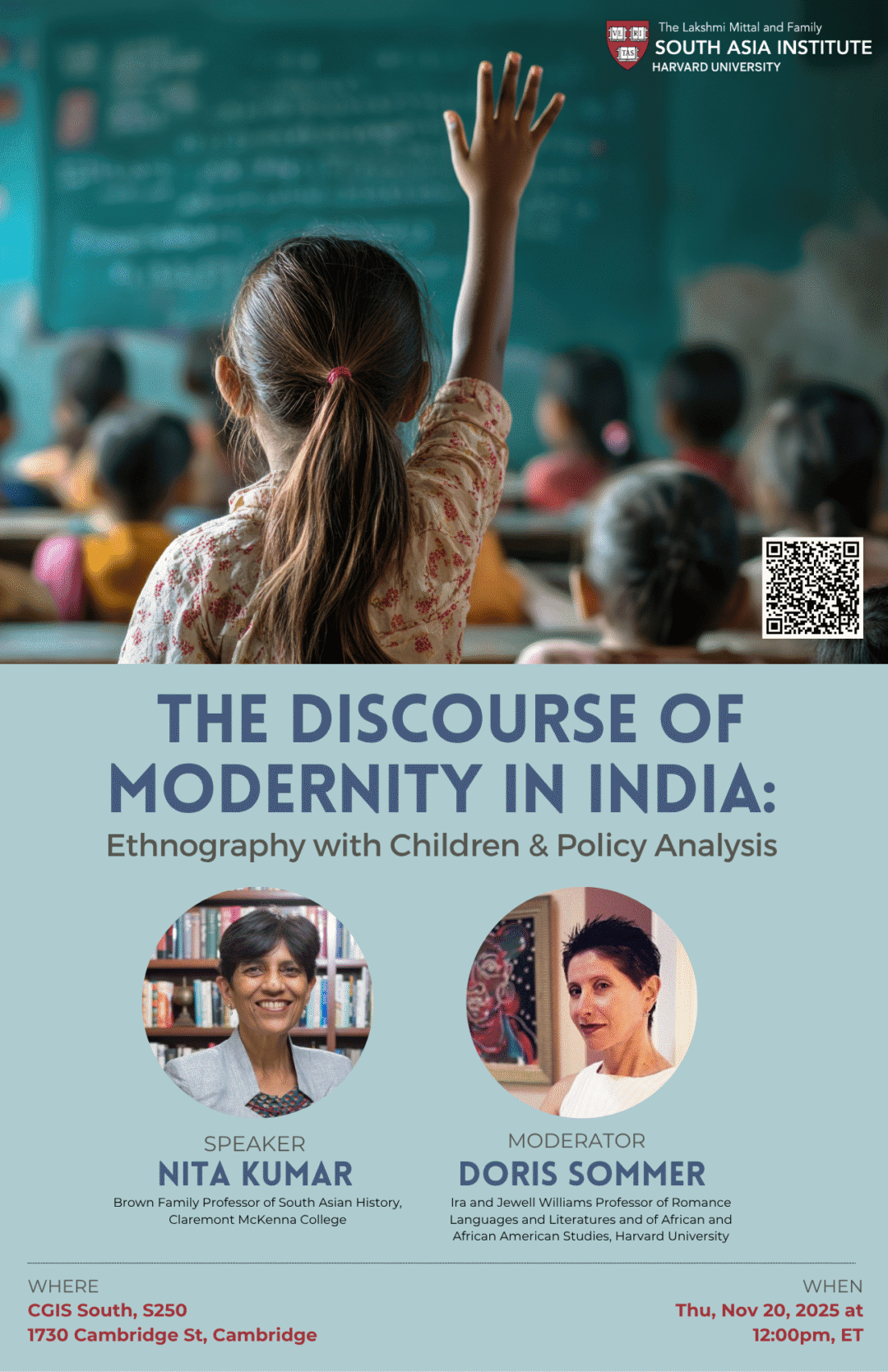Speaker: Nita Kumar, Brown Family Professor of South Asian History, Claremont McKenna College
Moderator: Doris Sommer, Ira and Jewell Williams Professor of Romance Languages and Literatures and of African and African American Studies, Harvard University
Abstract: India’s New Educational Policy 2020 makes fascinating reading. It shows the work of knowledgeable experts, asserts progressive ideals, and even movingly advocates child-centered, arts-oriented education. The problem, however, lies not in its ideals but in the very discourse of childhood and learning in India that makes progressive and equitable education impossible.
This talk examines how this discourse assumes the child’s essence to be determined by community background, making inequality appear natural and self-perpetuating. Prof. Kumar describes why Manju, a fisherwoman in North India, is correct in her assumption that her four small children will inherit approximately the same level of poverty as her, and why even abandoning public for private schools will not help her children escape this cycle.
Prof. Kumar traces how the intertwined histories, politics, and culture of Indian schooling have created a “performative modernity” embodied in the NEP—one that continues to marginalize and doom children to reproduce their disadvantage.

